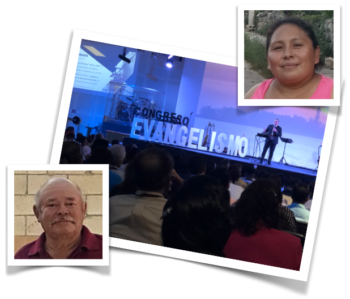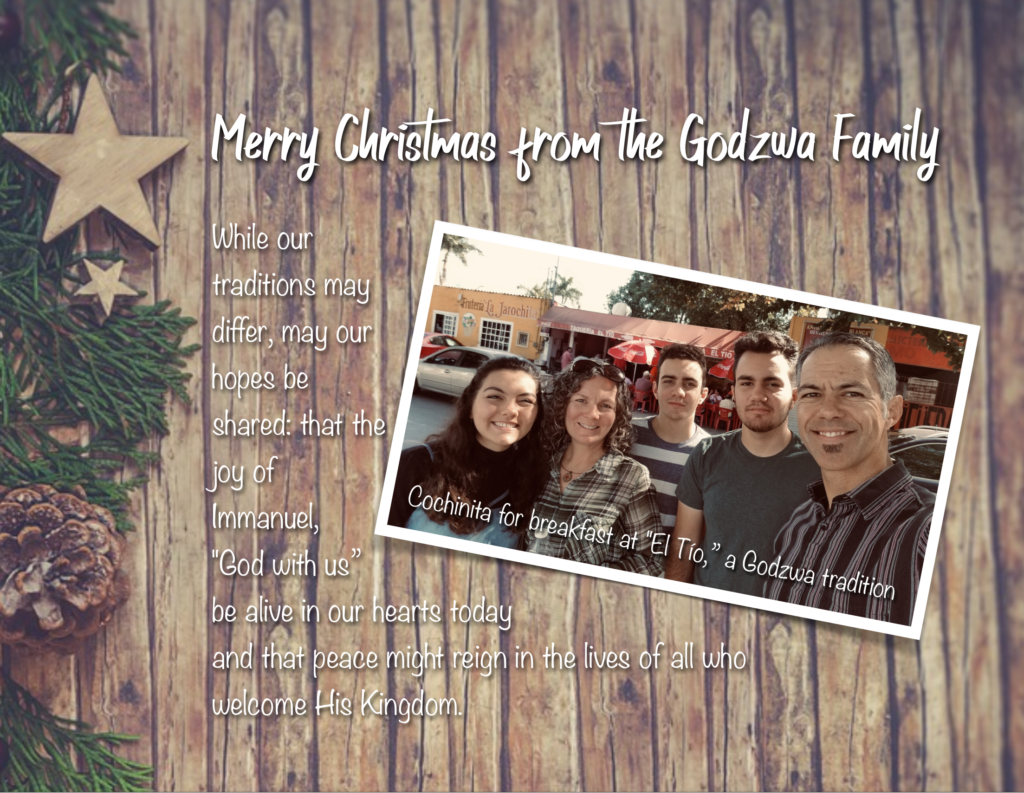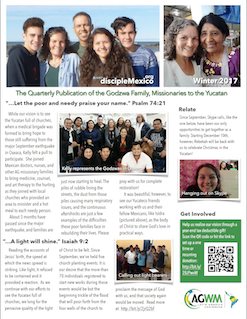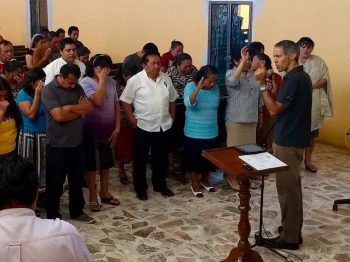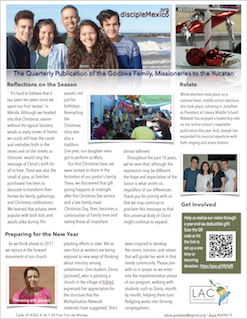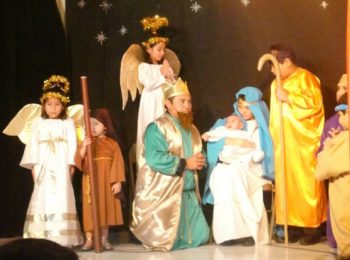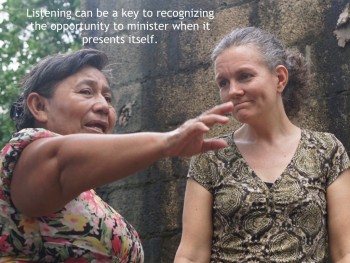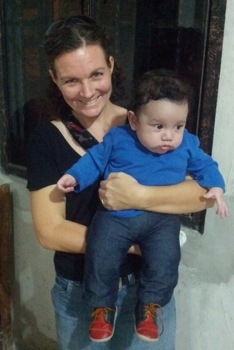This post was originally a sermon, spoken in Spanish, at the church Casa de Dios on 12/11/2022:

When you hear the word “Christmas”, what do you think of?
- Presents?
- Get-togethers?
- Time off from work?
- Memories?
- The excitement and expectations of children?
We often think of these things when Christmas is brought up. But is this all that there really is to our celebration? Is there a reason behind all the festivities? And what happens when:
- The excitement gives way to disappointment?
- And the memories turn out to be painful?
- Those get-togethers must be canceled?
- And we’re not able to take time off?
- Or there’s no room in our budget for buying presents?
Do we then cancel Christmas as well? No. Christmas remains a season of hope, a time for believing in miracles. But why? Because something really did happen, two thousand years ago that changed the world forever, something that continues to serve as a sign of an even better world to come.
Let’s take a few moments to consider Philippians 2:1-11 to discover together the true meaning of Christmas.
This portion of the Scriptures was written to the believers in the Greek city of Philippi. That city was the location of Paul’s first stop in Europe during his second missionary trip. It was also the place of his imprisonment after delivering a slave girl from a spirit of divination, which her owners had exploited for their own profit as they capitalized on her ability to predict the future. In this same city, Lidia, a woman of means, was converted along with the jailer who had presided over Paul and his colleague, Silas, during their time as prisoners of the authorities. And there, among these groups of new believers, we see the first aspect of the true meaning of Christmas:
- Revolution:
Lydia and the jailer represented two distinct groups in Roman society. These groups did not mix. On the contrary, they maintained strict separations to ensure that power, wealth and privilege would be reserved for the elite of society. Nevertheless, because of the gospel and what it did in the lives of these believers, according to verse one of our passage they enjoyed: the encouragement of Christ, the comfort of love, and the communion of the Spirit with one another that resulted in mutual affection and compassion.
This community was truly revolutionary, countercultural in its unity and appreciation of one another. It was an example of the upside-down Kingdom of God in which the first shall be the last and the greatest is the servant of all.
But this shouldn’t come as a surprise because that first Christmas, the birth of our Lord, also served to dignify the marginalized and lift the maligned. In the story that Luke tells we see that:
- Mary, a woman of low status was given the privilege of being the mother of Emmanuel, God with us.
- The holy family shared the suffering of the poor, finding no place for their lodging despite their extreme need,
- And a group of nameless shepherds was given the honor of hearing the Good News and being the first witnesses of the birth of the Savior of the world.
Indeed, for the early church, Christmas meant revolution and it can be for us as well.
- If God gave dignity to the poor by identifying with them, could we not do the same, especially in this season?
- If disparate elements of society were able to live in harmony in Philippi, couldn’t we emulate this countercultural tendency in our relationships, especially within the church?
May we recognize and live out the revolutionary meaning of Christmas.
But Christmas not only means revolution, but it also means:
- Rescue
As we turn again to our passage, focusing in on verses 5-8, we find in Christ what was lacking in humanity. God had created humans to reign with him, but his plan to share his power and authority with them ended in failure. These first humans, convinced by the voice of a serpent, could not trust in the wisdom of God’s plan and attempted to rule through their own understanding. But a kingdom cannot tolerate two kings with two distinct wills.
Because they usurped God’s authority, human beings were removed from his presence and condemned to exile, but God did not abandon his creation. From the garden of their rebellion, he began his work of their redemption. In Genesis 3:14-15, he spoke of one to come who would crush the head of the serpent, and Galatians 4:4 states that when the “fullness of time” came, God sent his Son, the seed of a woman, to put an end to its evil influence among his people.
Christ did, according to Philippians 2, what our ancestors could not. He was obedient to God; he trusted him even to the most horrifying death. He put himself in our place, taking the punishment of death that was our due, a death that he did not deserve. And that is why Colossians 2:13 say that he annulled the act of decrees that was against us, nailing it to the cross and stripping the evil powers of their authority over us.
Christmas means revolution, the dignification of all humanity, but it also means our rescue. By the coming, life, and death of Christ, we are no longer under condemnation. We are free from sin and from its penalty of death. But Christmas also means:
- Restoration
Again, in Philippians 2, focusing on verses 9-11 we see that, although Christ died, he did not remain in his tomb. On the third day, he rose again, inaugurating the restoration of all things. In the short term, the same Christ who died also rose again and ascended to the right hand of God where he was highly exalted. But we also await the completion of his exaltation in the reconciliation of all things, on earth and in heaven under his dominion. On that day the words of Revelation 21:3-5 will be announced:
I heard a loud shout from the throne, saying, “Look, God’s home is now among his people! He will live with them, and they will be his people. God himself will be with them. He will wipe every tear from their eyes, and there will be no more death or sorrow or crying or pain. All these things are gone forever.” And the one sitting on the throne said, “Look, I am making everything new!”
The true meaning of Christmas therefore is:
- Revolution: the dignification of all humanity
- Rescue: deliverance from the law of sin and its wages, death, and
- Restoration: the renewal of all things under the dominion of our Lord and Savior, Jesus Christ.
But how should we respond to all of this? Should we stop celebrating Christmas as we are used to? I’m not saying that at all. Still, we should be sure to take the time to:
- Remember Jesus did when he came that first Christmas, and
- Show our relatives and friends the meaning behind our celebrations and keep consumerism from taking control of our Christmas. Then we can
- Rejoice in our hope, much more than that of simply spending a few quiet days at home only to return to our daily grind afterward. I’m speaking of the blessed hope of the coming of our God and King, Jesus Christ, who promised to return and take us to a place where we will dwell with him forever.

